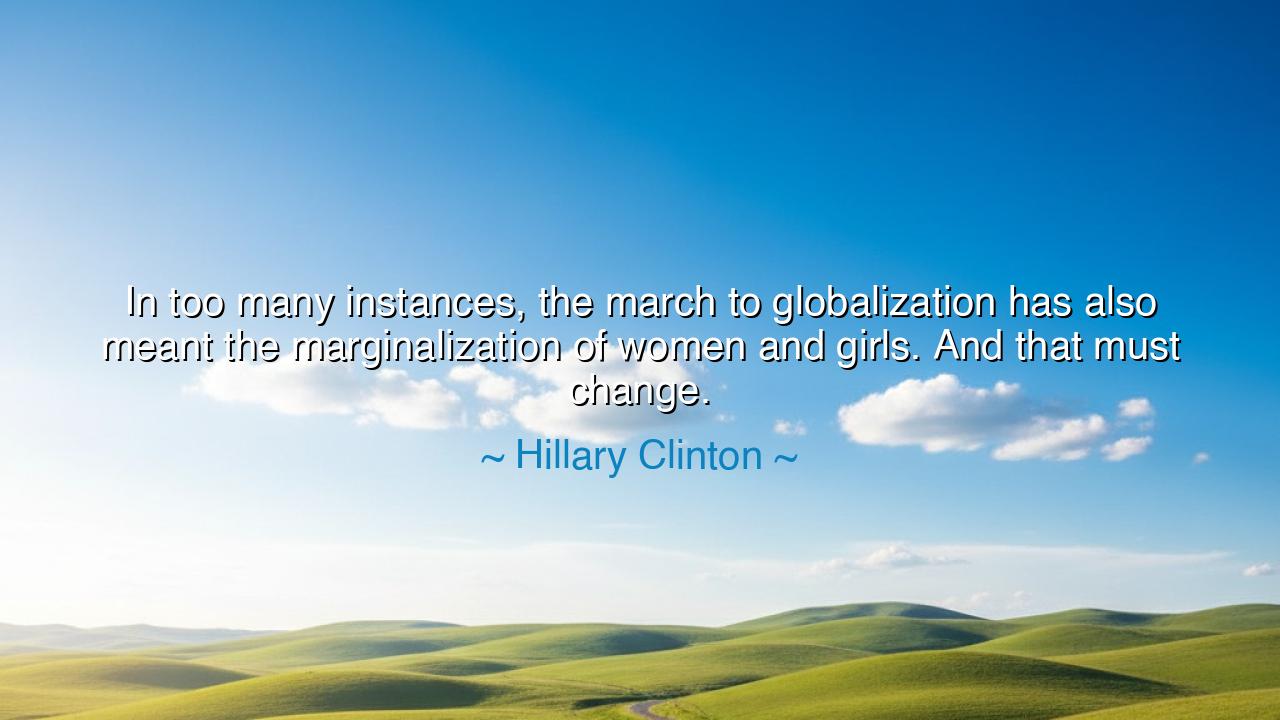
In too many instances, the march to globalization has also meant
In too many instances, the march to globalization has also meant the marginalization of women and girls. And that must change.






The words of Hillary Clinton, “In too many instances, the march to globalization has also meant the marginalization of women and girls. And that must change,” stand as both warning and command. They reveal a paradox of our age: that in the pursuit of progress, many are left behind, and among them, women bear the heaviest burden. The roads of commerce and technology stretch across the earth, yet too often they are paved with the silence of women whose labor is unseen, whose voices are unheard, whose futures are denied.
The origin of this truth lies in the patterns of power that echo from the past into the present. Empires once expanded through conquest; now nations expand through trade, finance, and technology. Yet the old shadow lingers: women and girls, though central to the life of communities, are often the first to be exploited, underpaid, or excluded. The march of globalization has brought wealth to some and poverty to others, and in its tide, the most vulnerable are too easily swept aside.
Consider the story of the women in the Bangladeshi garment industry, who toil in crowded factories stitching clothes for the world. Their hands fuel the global market, yet they are paid pennies, denied dignity, and forced to work in dangerous conditions. The collapse of Rana Plaza in 2013, where over a thousand workers—mostly women—perished, is a stark reminder of how marginalization hides beneath the banners of progress. Their deaths revealed to the world the cost borne by women in the age of globalization.
Clinton’s words cry out for change, not as a plea but as a mandate. To uplift women is not charity—it is justice, and it is wisdom. For when women are educated, economies grow; when women are empowered, peace endures; when girls are given a future, nations rise. To ignore them is to cripple the very foundation of progress, but to treasure them is to unleash the full strength of humanity.
This quote is not merely about economics but about the soul of civilization. If globalization is to be truly universal, it must not be built on the backs of the forgotten. It must honor the labor of women, invest in their education, safeguard their health, and protect their dignity. Only then will the march of progress become a march of justice.
Let the generations to come remember: to uplift women and girls is to uplift the world. The promise of globalization cannot be fulfilled while half of humanity stands at its margins. True change comes when the march no longer leaves anyone behind, but carries all forward together, in dignity and in strength.






AAdministratorAdministrator
Welcome, honored guests. Please leave a comment, we will respond soon